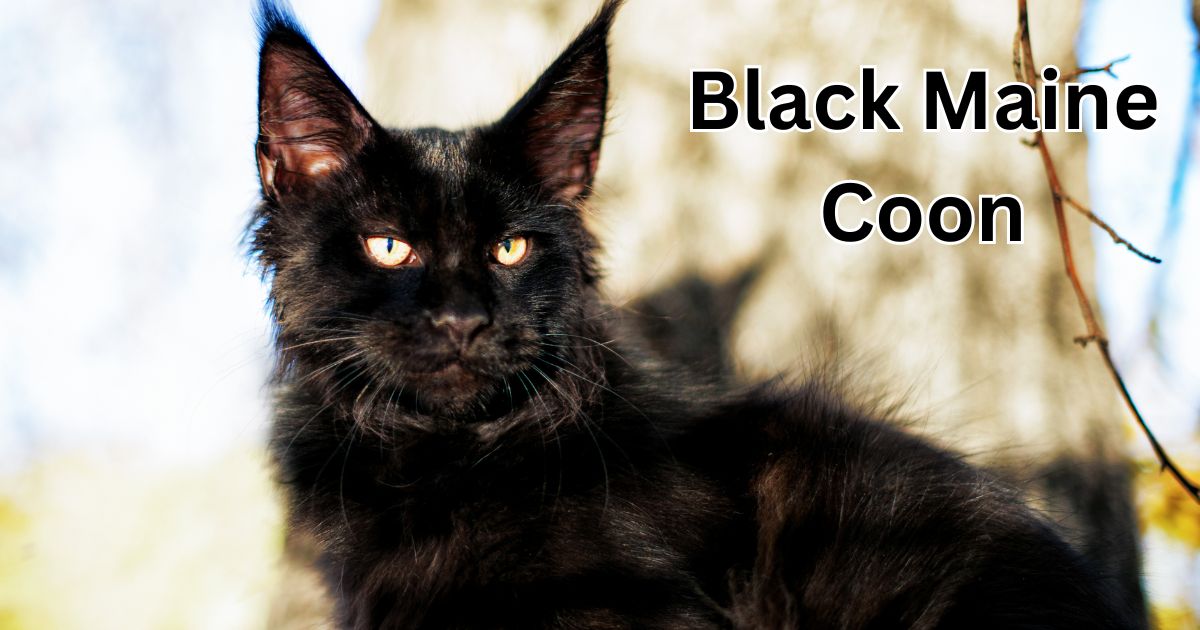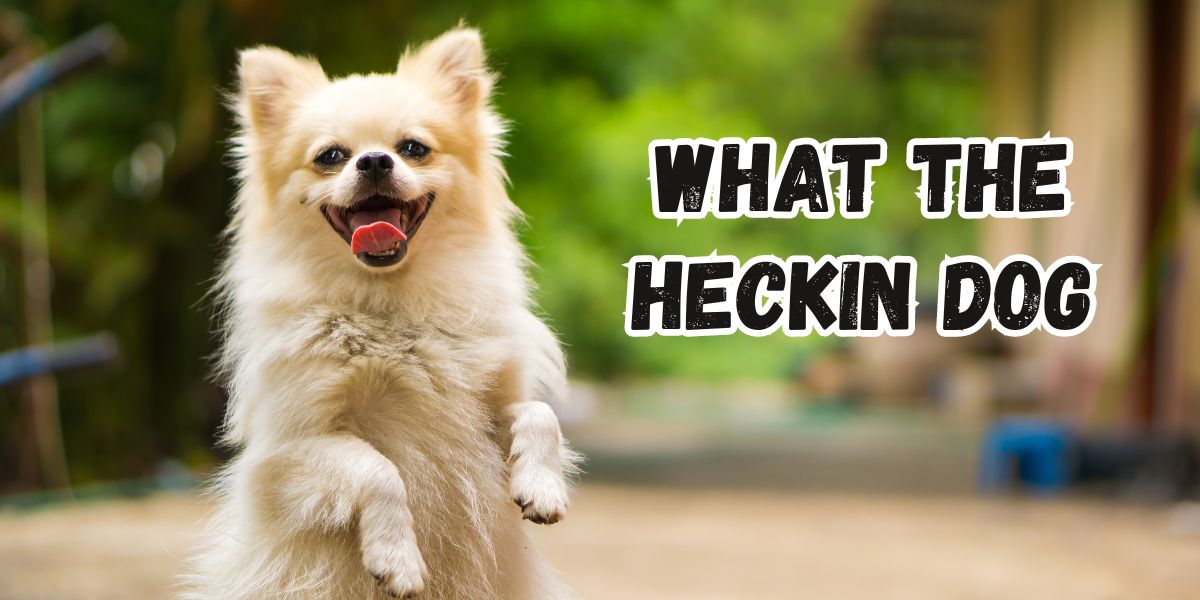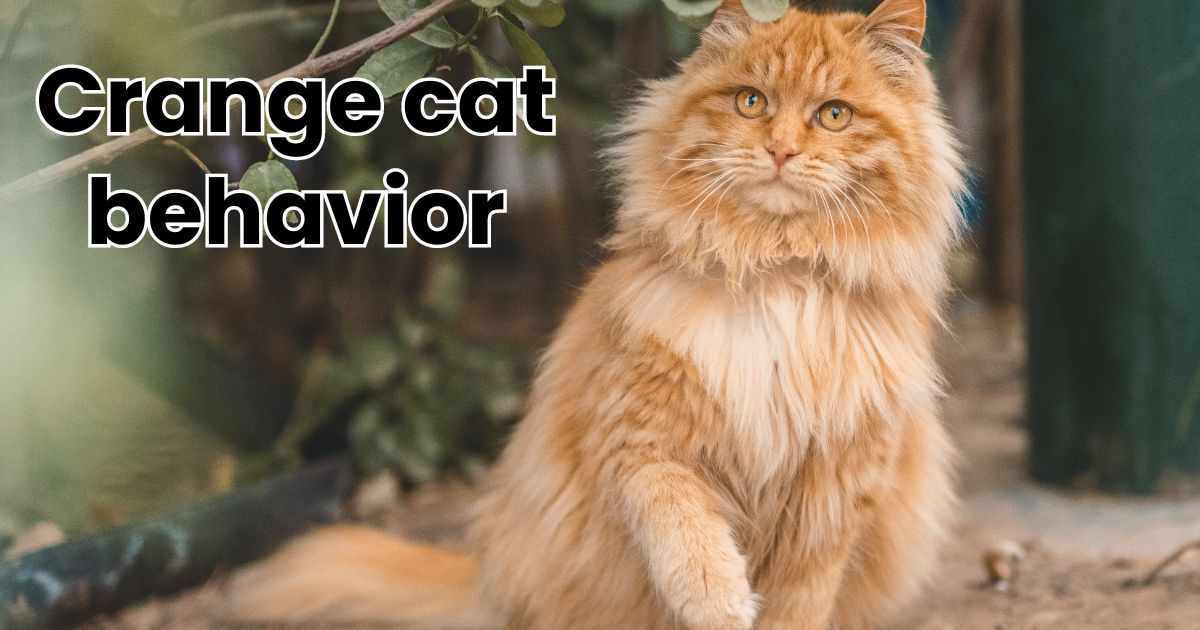The Black Maine Coon is a captivating and majestic variant of the Maine Coon breed, renowned for its striking appearance and endearing personality. These cats possess a luxurious black coat that enhances their already impressive size and presence, making them a favorite among cat enthusiasts. Known for their friendly and sociable nature, Black Maine Coons are not just beautiful but also make excellent companions.
Maine Coons are one of the oldest natural breeds in North America, hailing from the state of Maine. They are known for their large size, tufted ears, bushy tails, and robust build. Despite their formidable appearance, Maine Coons are gentle giants, often referred to as “dog-like” cats due to their affectionate and playful nature. The Black Maine Coon, with its sleek, dark coat, stands out as a particularly elegant and mysterious variation of this beloved breed.
History and Origin
Origins of the Maine Coon Breed
The origins of the Maine Coon breed are shrouded in mystery and folklore. One popular myth suggests that these cats are the descendants of domestic cats and raccoons, which is genetically impossible. Another romantic legend claims they are the progeny of Marie Antoinette’s long-haired cats sent to America during the French Revolution. The more plausible theory is that Maine Coons evolved from cats brought to America by European settlers, adapting to the harsh New England winters with their thick, water-repellent coats and sturdy build.
Emergence of the Black Maine Coon
The Black Maine Coon emerged through natural genetic variations within the breed. The black coloration in these cats is due to the presence of the dominant B gene, which produces black pigment in the fur. Over time, breeders have recognized and cultivated the black variant for its unique beauty and charm. Today, the Black Maine Coon is celebrated not only for its striking appearance but also for its embodiment of the breed’s best traits.
Physical Characteristics
Size and Build
Black Maine Coons are among the largest domesticated cat breeds, with males typically weighing between 13 to 18 pounds and females ranging from 8 to 12 pounds. Their muscular build, broad chest, and sturdy legs give them a powerful and majestic presence. Despite their size, Black Maine Coons are agile and graceful, able to move with surprising elegance.
Coat and Coloration
The most defining feature of the Black Maine Coon is its luxurious black coat. This dense, water-repellent fur requires regular grooming to maintain its luster and prevent matting. The black coat can vary in shade, from deep jet black to a slightly softer, more muted black. Regular brushing helps manage shedding and keeps the coat in prime condition, highlighting the cat’s natural beauty.
Distinctive Features
Black Maine Coons possess several distinctive features that set them apart. Their large, expressive eyes can range in color from gold to green, providing a striking contrast to their dark fur. The tufted ears, bushy tail, and ruff of fur around the neck give them a lion-like appearance. These features, combined with their size and coat, make the Black Maine Coon a truly regal and imposing feline.
Personality and Temperament
General Temperament of Maine Coons
Maine Coons are known for their friendly and sociable nature. They are often described as “gentle giants” due to their affectionate demeanor and tendency to form strong bonds with their human companions. These cats are intelligent, curious, and enjoy interactive play. They are also known for their vocalizations, often communicating with a range of chirps and trills.
Traits Specific to Black Maine Coons
While Black Maine Coons share many traits with other Maine Coons, they are often noted for their slightly more reserved and mysterious demeanor. Their black coat can give them an air of elegance and sophistication. They are usually very loyal and can be quite attached to their owners, often following them around the house and enjoying being part of family activities. Despite their majestic appearance, they are playful and enjoy games that challenge their intelligence.
Health and Lifespan
Common Health Issues
Like all breeds, Black Maine Coons can be prone to certain health issues. Common genetic problems include hip dysplasia, hypertrophic cardiomyopathy (a heart condition), and spinal muscular atrophy. Regular veterinary check-ups, a balanced diet, and a healthy lifestyle can help manage and prevent many of these issues. Early detection and treatment are crucial to maintaining their health and well-being.
Average Lifespan
The average lifespan of a Black Maine Coon is around 12 to 15 years, though many live longer with proper care. Factors that influence their lifespan include genetics, diet, exercise, and regular veterinary care. Providing a safe and nurturing environment, along with preventive health measures, can help ensure a long and healthy life for these magnificent cats.
Nutrition and Diet
Dietary Needs
Black Maine Coons require a diet rich in protein to support their large, muscular bodies. High-quality commercial cat foods that list meat as the first ingredient are generally recommended. They also benefit from a balance of fats and carbohydrates to maintain energy levels. Regular feeding schedules and portion control are important to prevent obesity, a common issue in large breeds.
Recommended Foods
While commercial cat food is convenient and nutritionally balanced, some owners prefer to include homemade meals or raw diets. It’s essential to consult with a veterinarian or a pet nutritionist to ensure all nutritional needs are met. Fresh water should always be available, and treats should be given in moderation to prevent weight gain.
Grooming and Care
Coat Maintenance
Maintaining the Black Maine Coon’s coat requires regular grooming. Brushing the coat at least twice a week helps prevent tangles and mats, particularly around the neck and underbelly. During shedding seasons, more frequent brushing may be necessary. Using a high-quality brush or comb designed for long-haired cats can make the grooming process easier and more effective.
Hygiene Practices
Regular bathing can help maintain the sheen of the Black Maine Coon’s coat, although these cats are generally good at grooming themselves. In addition to coat care, regular nail trimming, dental care, and ear cleaning are important. Dental health is particularly crucial, as Maine Coons can be prone to periodontal disease. Regular veterinary check-ups can help monitor and maintain overall health.
Also Read: Construction TV Show
Training and Behavior
Basic Training Tips
Training a Black Maine Coon can be a rewarding experience due to their intelligence and eagerness to learn. Basic training should start with litter training, which these cats usually pick up quickly. Positive reinforcement techniques, such as treats and praise, work well for teaching commands and tricks. Maine Coons enjoy interactive toys and games that stimulate their minds and bodies.
Addressing Behavioral Issues
Behavioral issues in Black Maine Coons are relatively rare but can include scratching furniture, aggression, or excessive vocalization. Providing appropriate scratching posts, regular playtime, and social interaction can help mitigate these issues. If problems persist, consulting with a veterinarian or an animal behaviorist can provide additional strategies and solutions.
Living Environment
Ideal Home Setup
Black Maine Coons thrive in environments that provide plenty of space and stimulation. They enjoy both indoor and outdoor living, but outdoor access should be supervised to ensure their safety. A home setup that includes cat trees, climbing shelves, and interactive toys can keep them entertained and mentally stimulated. These cats also appreciate cozy spots for napping and observing their surroundings.
Adapting to Changes
Maine Coons are generally adaptable but can be sensitive to changes in their environment. Moving to a new home, introducing new pets, or significant changes in the household routine can cause stress. Gradual introductions and maintaining a sense of routine can help ease transitions. Providing familiar toys, bedding, and a quiet space can also help them adjust more comfortably.
Breeding and Genetics
Breeding Practices
Ethical breeding practices are crucial for maintaining the health and quality of Black Maine Coons. Reputable breeders follow guidelines that prioritize the well-being of the cats, conducting health screenings and genetic testing to prevent hereditary diseases. Breeding pairs are selected based on health, temperament, and conformation to breed standards.
Genetic Considerations
Understanding the genetics of coat color can help breeders produce healthy Black Maine Coon kittens. The black coat is a result of the dominant B gene, and breeding for this trait requires careful selection to maintain genetic diversity and minimize health risks. Genetic testing for common diseases and traits can help ensure the kittens are healthy and free from hereditary conditions.
Adoption and Purchasing
Finding a Reputable Breeder
When looking to purchase a Black Maine Coon, it’s important to find a reputable breeder. Prospective owners should ask about the breeder’s practices, request to see health certificates, and visit the breeding facility if possible. A responsible breeder will provide a healthy, well-socialized kitten and offer support and guidance to new owners.
Adoption from Shelters
Adopting a Black Maine Coon from a shelter can be a rewarding experience. Many purebred Maine Coons, including black variants, find their way to shelters and rescue organizations. Adoption provides a loving home to a cat in need and can be a more affordable option. Shelters often have resources and support to help new owners transition their new pet into their home.
Black Maine Coon Kittens
Early Development Stages
Black Maine Coon kittens go through several developmental stages, from birth to adulthood. In the first few weeks, they rely on their mother for nutrition and warmth. Socialization begins early, and interaction with humans and other animals is crucial for developing a well-adjusted adult cat. By the age of 12 weeks, they are typically ready for their new homes.
Caring for Kittens
Caring for Black Maine Coon kittens involves providing a balanced diet, regular veterinary care, and plenty of social interaction. Kittens need high-quality kitten food to support their rapid growth and development. Regular playtime helps develop their physical and mental abilities, while gentle handling and socialization build trust and affection.
Famous Black Maine Coons
Notable Black Maine Coons in Media
Black Maine Coons have made appearances in various forms of media, captivating audiences with their striking looks and charming personalities. They have been featured in movies, TV shows, and advertisements, often portraying roles that highlight their regal and mysterious nature. Their unique appearance makes them memorable and beloved by fans.
Stories of Remarkable Black Maine Coons
Many Black Maine Coons have left a lasting impression on their owners and the broader community. Personal stories of these remarkable cats often include tales of their intelligence, loyalty, and playful antics. Whether as beloved pets or social media stars, Black Maine Coons have a way of capturing hearts and becoming cherished members of their families.
Common Myths and Misconceptions
Debunking Myths
There are several myths and misconceptions surrounding black cats, including the Black Maine Coon. One common myth is that black cats bring bad luck, a superstition that has no basis in reality. Another misconception is that all black cats have the same personality traits. In truth, each Black Maine Coon has its unique temperament and characteristics.
Clarifying Facts
Black Maine Coons are just as loving and friendly as any other Maine Coon. Their black coat does not influence their behavior or personality. Educating potential owners about the true nature of Black Maine Coons can help dispel myths and encourage more people to consider adopting these beautiful cats.
Community and Resources
Online Communities
There are numerous online communities dedicated to Maine Coon enthusiasts, including those who specialize in Black Maine Coons. These forums and social media groups provide a platform for sharing experiences, asking questions, and learning more about the breed. Engaging with these communities can offer valuable insights and support for current and prospective owners.
Events and Shows
Cat shows and competitions are excellent opportunities to see Black Maine Coons in person and meet breeders and other enthusiasts. These events often include categories specifically for Maine Coons, showcasing the best examples of the breed. Local meetups and gatherings also provide a chance to connect with other owners and share tips and advice.
Comparative Analysis
Black Maine Coon vs. Other Maine Coon Colors
While Black Maine Coons share many traits with other Maine Coon colors, their striking black coat gives them a unique allure. Some owners prefer the black variant for its elegance and mystery, while others may choose different colors based on personal preference. Regardless of color, all Maine Coons possess the same friendly and affectionate nature.
Black Maine Coon vs. Other Black Cat Breeds
When compared to other black cat breeds, the Black Maine Coon stands out for its size, personality, and distinctive features. While breeds like the Bombay or the Black Persian also have beautiful black coats, the Maine Coon’s large size, tufted ears, and bushy tail set it apart. Their sociable and playful temperament further distinguishes them from other black cat breeds.
Legal and Ethical Considerations
Ownership Responsibilities
Owning a Black Maine Coon comes with legal and ethical responsibilities. Prospective owners should ensure they can provide a stable and nurturing environment for their cat. Legal requirements may include licensing, microchipping, and adhering to local pet ownership regulations. Ethical considerations involve committing to the cat’s long-term care and well-being.
Advocacy and Welfare
Supporting animal welfare organizations and promoting responsible breeding and adoption practices are essential for the well-being of Black Maine Coons. Advocating for ethical treatment of all animals, including those in breeding and shelter environments, helps ensure that these cats receive the care and respect they deserve.
FAQs
Q: Are Black Maine Coons rare?
A: While not as common as some other color variations, Black Maine Coons are not extremely rare. Their unique beauty makes them highly sought after.
Q: Do Black Maine Coons require special care?
A: Black Maine Coons require regular grooming, a balanced diet, and routine veterinary care, similar to other Maine Coons.
Q: Are Black Maine Coons more aggressive?
A: No, Black Maine Coons are not more aggressive than other Maine Coons. They are typically friendly and sociable.
Resources for Further Information
For those interested in learning more about Black Maine Coons, recommended resources include breed-specific books, reputable breeder websites, and organizations such as The International Cat Association (TICA) and the Cat Fanciers’ Association (CFA). Consulting with veterinarians and experienced breeders can also provide valuable insights and guidance.
Conclusion
Black Maine Coons are a stunning and majestic variant of the Maine Coon breed, known for their striking black coats, large size, and friendly personalities. They make excellent companions due to their affectionate nature and playful demeanor. Proper care, including regular grooming, a balanced diet, and routine veterinary check-ups, is essential for maintaining their health and well-being.
Owning a Black Maine Coon can be a rewarding experience, offering years of companionship and joy. These cats bring a unique blend of elegance and charm to any home. By understanding their needs and providing a loving environment, potential owners can enjoy a fulfilling relationship with their Black Maine Coon. Embracing the responsibilities of pet ownership and advocating for ethical treatment ensures a happy and healthy life for these magnificent cats.









